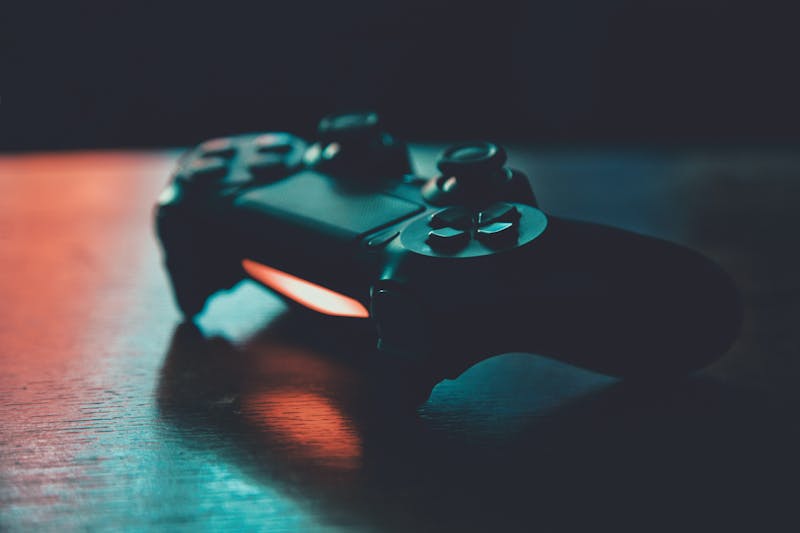When Gaming Becomes A Problem

Today gaming is big business, probably far bigger than you'd even imagine. While we've spent decades seeing advertisements for the latest Hollywood blockbuster or glitzy album by a pop star, the gaming industry has silently been taking over, with it now outperforming the film and music industry combined in certain territories. In 2020, boosted by the lockdowns across the globe, the video game industry grew by a massive 9%, raking in $159.3 billion. Long gone is the narrow minded perception that gaming is solely for the anti-social or kids, with video games and their benefits now appealing to all ages and player percentages split almost equally between both sexes.
Still, too much time glued to a screen is never a good thing, and like all things in life balance is key. When gaming first entered pop culture, hanging out in an arcade was the best way to feed your electronic fix, but with the advent and evolution of home consoles, players were soon able to enjoy increasingly immersive worlds - and with friends and strangers alike. For many, gaming gives a sense of community, and worries about the 'damage' violent games have been doing to younger minds have been proven nonsense time and time again. The real dangers are how the industry is run itself, with certain games adding addictive elements to their products as well as the dreaded micro-transaction. So when can we tell when gaming has become a problem? We've answered that question below.
Addiction
Gaming addiction is much like any other, developing an obsession or habit detrimental to your health and mental well-being. While games can be a great way to relax for the majority, sometimes people can find themselves totally absorbed by gaming, ignoring the outside world, friends, and even their personal hygiene.
Enjoying a gaming session around the other parts of your day is no issue, but if you find yourself sitting in front of a screen for multiple hours or endlessly thinking about your game when away from it, these can be signs of an unhealthy relationship forming. Like any hobby or pastime, gaming should be slotted around your life, not become it. Keeping track of the amount of time you've played a game - a feature easily available on modern software - is a good way to stop you from going astray.
Gambling
Gambling and gaming have always gone hand in hand, from dice games on the sidewalk, to blackjack in flashy casinos. However, it has always been understood that gambling is based on chance, and no matter how much skill is brought into it, all things can change by the hand of fate. The same can't be said for gaming, where the possession of skill dramatically increases your chance to win.
On the one hand, the birth of gaming as a sport has opened up many career paths that haven't existed before, making that childhood dream of playing games for a living, reality. On the other hand, those who don't possess the skill needed to play amongst the elites will turn to 'additional content,' 'purchased upgrades,' and 'gaming currency' to advance their online profiles. 'Pay-to-play' is a phrase often used to summarise this concept, where paying more money actually gets you further within a game. Tim Sweeney, co-founder of Epic Games, has stated in the past that the 'loot boxes' from the popular game Fortnite, "do customers harm." These 'loot boxes' are in-game perks that cost money to buy, and require the player to essentially gamble, as you're never quite sure what you're going to get.
FIFA Soccer, the world's best-selling soccer game, also has a 'loot box' system built within its multiplayer community. Researchers at the universities of Plymouth and Wolverhampton stated that "loot boxes are structurally and psychologically akin to gambling." As it stands, these randomized video game perk systems are not deemed as gambling, and for places like the UK where gambling requires a license, no protection or restrictions exists for children or financially strained people who get caught up in this addictive world.
Symptoms & Treatments
So far, we've spoken about gambling and gaming addiction, which are delicate and expansive topics within themselves, but they both bring up an important question; what are the symptoms of gaming addiction? Understanding the symptoms of this sometimes silent issue is important for those who game and for those who don't. Sometimes we can become numb to routine, and keeping our eye out for these changes in behavior might just stop a serious problem in its tracks.
The main behavioral/physical symptoms are:
- Lower tolerance
- Short temper
- Lack of interest in other activities
- Degradation of relationships
- General withdrawal
- Using gaming as an escape or relieve anxiety or guilt
- Strained eyes
- Gamer's thumb (Finger injuries/strain)
Each issue presented here is highly treatable, and most of them require very little treatment to correct. It's the combination of symptoms that might lead to a serious problem. Firstly, introduce limits into your gaming session, or if you are a parent, into your child's gaming time. Reducing screen use is always a good start, but if a problem still exists, try injecting daily exercise or non-technology based activities into your daily routine. If you've tried all of these approaches and nothing has helped, then seek the physical or psychological help you need. A doctor or psychiatrist will be able to assess the exact nature of your issue and get you the assistance and care you require.
Routers & Gaming
Another alternative solution for those who struggle with their gaming habits is to take a look at your home router's capabilities. For avid gamers, having a high-performance router results is crucial, as it results in the smoothest, most consistent gaming experience. However, modern routers are also great tools for limiting and controlling the amount of playtime you experience each day.
If you're a parent, locate the parental controls assigned to your router; from there, you can adjust your web access, screen time, and Wi-Fi settings. If you're not a parent, then simply setting a daily 'Wi-Fi pause' feature can remind you to stop gaming, and take a break. Explore your router's capabilities and discover new ways to keep your gaming routine healthy.
Resources:
- Global games market value to reach $159bn in 2020
https://www.gamesindustry.biz/articles/2020-06-26-global-games-market-value-to-reach-usd159-3bn - Gaming Vs Gambling
https://www.greo.ca/en/topics/convergence-of-gaming-and-gambling.aspx - Fortnite Loot Boxes And Their Harm
https://www.bbc.com/news/technology-51502592 - Study Into The Addictive Nature Of FIFA
https://www.eurogamer.net/articles/2021-04-03-link-between-loot-boxes-and-problem-gambling-robustly-verified - The Health Effects Of Gaming
https://www.health.harvard.edu/blog/the-health-effects-of-too-much-gaming-2020122221645 - Gaming Addiction Symptoms & Treatment
https://www.webmd.com/mental-health/addiction/video-game-addiction - Best Gaming Routers
https://19216811.mobi/review/best-wifi-routers-gaming

